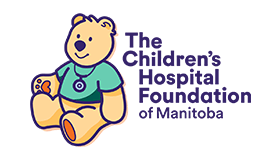Sexual Assault/Intimate Partner Violence Program (SA/IPV)
Please call 204-787-2071 – Ask for the Sexual Assault/Intimate Partner Violence Examiner or report to Adult or Children’s Emergency.
The Sexual Assault/Intimate Partner Violence Program (SA/IPV) is a group of specially trained female nurses who provide treatment 24-hours a day, seven days a week to people of any gender, aged 14 and older, who have been sexually assaulted or recently assaulted either by a stranger, friend, acquaintance, or by their intimate partner (sexually and/or physically).
Pediatric and adolescent patients (under the age of 14) are seen by specialized physicians from the Child Protection Centre (CPC). Treatment is available 24-hours a day, seven days a week.
- We provide options and choices about medical care and/or police reporting.
- We provide medications to prevent infection and pregnancy.
- We connect you with counselling services and community resources if you choose.
Our goal is to provide you with the information you need to make choices that are best for you.
What is sexual assault?
The terms “sexual assault” and “rape” may be used interchangeably.
Sexual assault is:
- An act of violence or aggression involving a sexual attack – the act can be verbal, emotional, or physical
- Touching in a sexual way without permission, including if you were asleep, unconscious, high or drunk
- Forced kissing or fondling
- Forced oral, anal or vaginal intercourse
The person who assaulted you may be a stranger, friend, partner, or acquaintance.
What is Intimate Partner Violence (Domestic Violence)?
Intimate Partner Violence (also referred to as domestic violence) is when one person in a relationship tries to dominate and/or control the other person through actual or threatened physical, sexual, psychological, emotional, or financial abuse.
Intimate Partner Violence can happen to people in all types of relationships. It can happen to people of any gender, race, culture, and age.
What should I do if I am sexually assaulted or abused?
- Go to a safe place
- Call 911 or your local police if you believe you are still in danger
- Go to a hospital, clinic, or nursing station as soon as possible for medical care
- Tell someone you trust (a friend, relative, or Elder)
What happens if I go to the hospital?
You will receive medical help. A specialized health-care provider will meet with you and talk about options for receiving care.
- When you report to an emergency department or urgent care, you will visit the triage desk and be asked why you have come to hospital
- The SA/IPV Team, or CPC (depending on the age of the patient), will be consulted and be at the hospital to see you as soon as possible
- You will be able to have a support person stay with you
- Care teams (in the emergency department or another unit of the hospital depending upon your care needs) will provide you with appropriate care
- When your medical needs have been met, a specially trained health-care provider (nurse, physician, nurse practitioner) will meet with you to discuss your options. An exam, testing and treatment will be offered
- If you decide to have police involved, we will assist you with the process and your specialized provider may be able to collect evidence. Reporting to police will remain your choice
- You will be provided with information and/or connections to follow-up or wrap-around supports available in the community
Where will I stay while at HSC?
After you have been triaged, your care needs will be met in the most appropriate location. HSC has a comfortable, private, and safe location for forensic examinations to occur and care teams will work to offer patients a private location to use during any wait.
You Are Not Alone: A walk-through of SA/IPV services
Additional resources
- Domestic Abuse Crisis Line (24 hours) – 1-877-977-0007 (Toll free) or 1-888-987-2829 (TTY)
- Manitoba Domestic Violence
- Support Services (DVSS) – 204-945-6851 (Winnipeg) or (Toll free) 1-866-484-2846
- KLINIC Sexual Assault Crisis Line (24 hours) – 204-786-8631 or (Toll free) 1-888-292-7565
- Winnipeg Police Non-Emergency – 204-986-6222
- HSC Winnipeg paging – 204-787-2071 (ask for the Sexual Assault Nurse Examiner)
- Shelters in Winnipeg
- Information about forensic nurses



